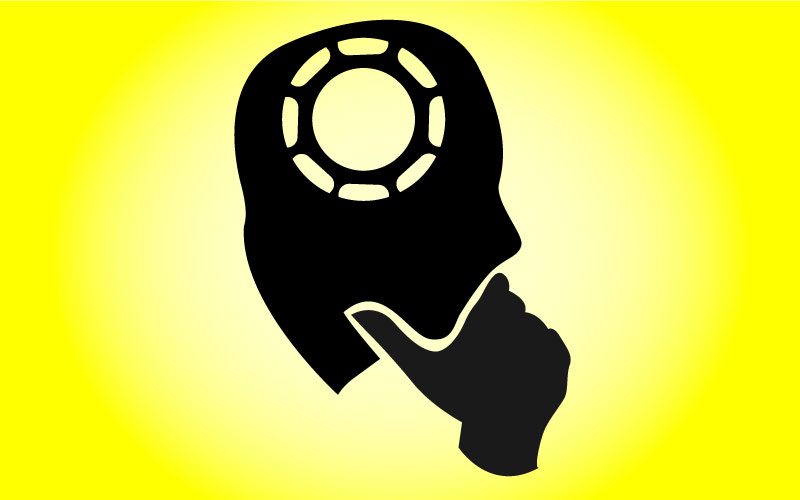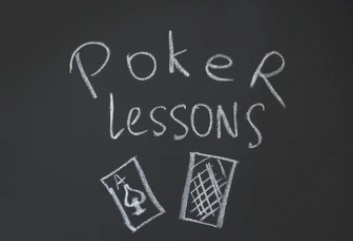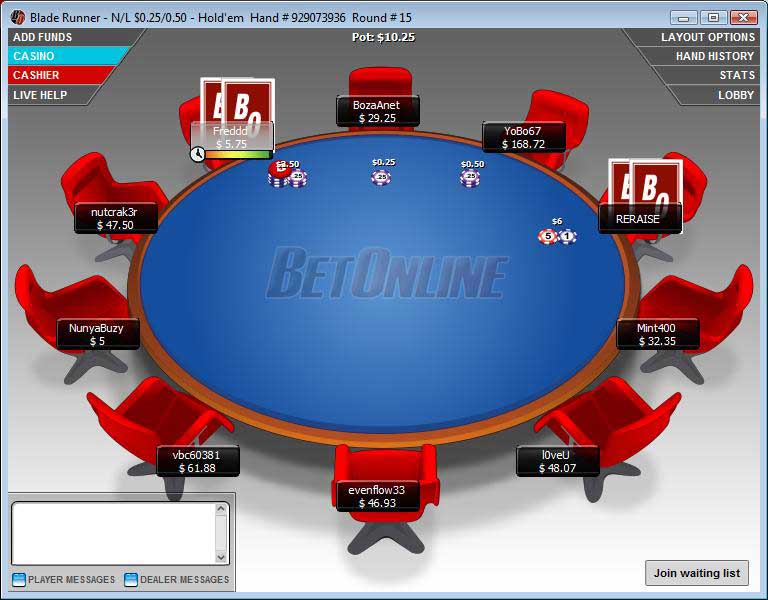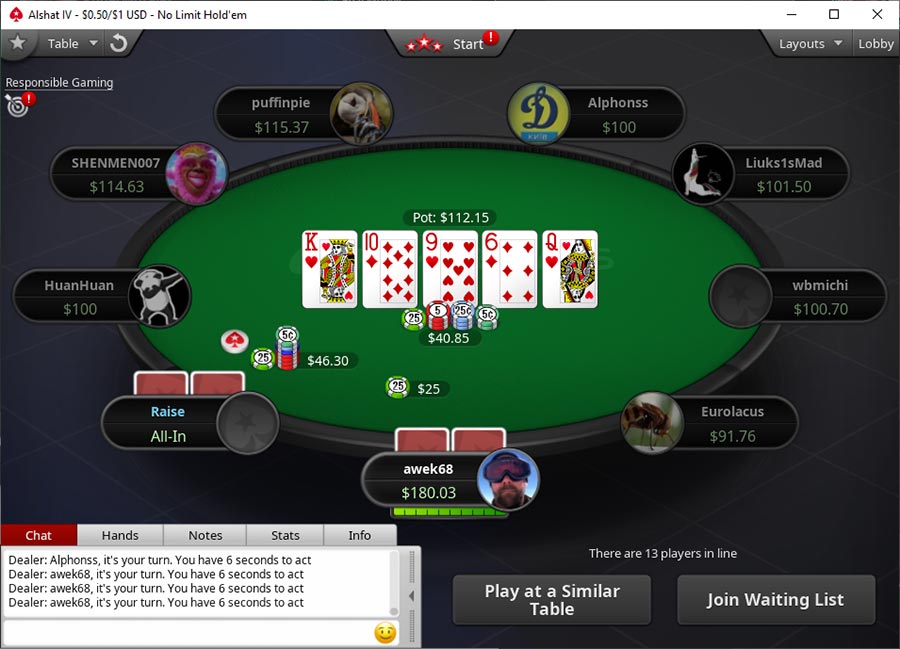
Poker Strategy: No Limit Hold’em
What are the two most powerful words you can say in poker? I’m “ALL IN”.
You can win or lose entire stacks in a single hand of No Limit Hold’em, and this excitement accounts for much of the popularity of the game. It’s not just a contest of having the best hand when all the chips go in the middle though. Well before that point, you should have created a plan for every street of the hand and formulated – in advance – your responses to every action your opponent takes. This isn’t magic but rather a science, and we’ll show you how to do it right. The articles below cover starting hand selection, the advantages of being aggressive, the stack-to-pot ratio, preflop three-betting, and the other concepts that you must master before you can truly become a proficient practitioner of NLHE. Once you achieve a certain level of skill, you’ll find yourself with numerous opportunities to practice it because No Limit Texas Hold’em is currently the most commonly spread form of poker in the world.


An Introduction to Abstract Thought in Poker (Part 2)
Being able to think a little abstractly about the learning process in poker will help you to see the big picture instead of being stuck in the short term.
Thinking About Your Ranges When Continuation Betting
the importance of considering not just individual hands but the overall strength of your betting and checking ranges, guiding players on how to adjust these ranges based on the opponent's tendencies and the specific situation at hand
Applications and Limitations of the Alpha Value
the significance and proper application of the alpha value in poker, highlighting its utility in specific single-street situations, while cautioning against its misuse in multi-street scenarios
ISF – Pocket Pairs
strategic intricacies of playing pocket pairs in high-stakes poker, advocating for a cautious approach that often favors folding preflop
Transitioning from Online to Live Play
If you’ve only played poker online, you will need to make some changes to your game before you play live in a brick-and-mortar casino. For instance, you’ll need to manually track your opponents’ stacks and the pots, abide by the casino’s house rules, tip your dealers and adapt to slower play.
ISF – Strategic Bet Sizing
the strategic importance of bet sizing in poker, highlighting that while many players have a "standard" bet size, adjusting bet sizes based on opponent behavior and one's own strategy can be more effective, with considerations for pot odds and manipulating probabilities
Beating 6 Max No Limit Holdem by Sauce123
Six-max poker tables offer excitement but require a different style of play than full-ring games. You will want to remain reasonable with your opening ranges, but three-bet liberally. You should c-bet a lot, but be more cautious on future streets.
Renton’s Small Stakes NLHE Ring Strategy: Preflop
in-depth guide on preflop strategy for small stakes No-Limit Hold'em ring games, discussing how to adapt to different table dynamics, the importance of position, and how to adjust your hand ranges based on the game's tightness or looseness
Balance is the Key
finding the right balance between playing too tightly and too loosely is crucial for success in poker, emphasizing that tracking software can assist but ultimately, adapting your strategy based on the game's dynamics is key
Comparing and Evaluating Different Bluffing Lines
complexities of different bluffing lines in poker, examining factors like opponent's fold frequency, bet sizes, and pot sizes to evaluate which bluffing strategies offer the most value in various scenarios, such as leading versus check-raising
Texas Holdem Position
the critical role of player position in Texas Hold'em poker, explaining that having a favorable position allows you to gather more information on other players' actions, thereby enabling better decision-making
No-Limit Hold’em… A Flaw in Design
argues that the game of No-Limit Hold'em has inherent design issues, particularly in cash games, where skilled players can find themselves handicapped when facing novices who buy-in for the minimum, rendering many of the skilled player's strategies ineffective
Starting Hands Chart and Groupings
Hand groupings for no limit texas holdem. Play the different hand groups differently depending on position.
ISF – Forming Ranges
delves into the concept of forming hand ranges in poker, explaining that understanding the rationale behind your hand choices can help you self-repair leaks in your game
How to Play AK When You Miss the Flop
If you want to know how to play AK in 3-bet spots where you miss the flop, then you need to consider a few key factors.
Essential Examples of Blockers in Poker
A good place to start working with ranges is looking at blockers, why they matter, how they work and what you can do with them.
Spenda’s 5 Biggest Leaks of a Losing NL Player – Leak 5
the importance of hand-reading in poker, detailing how processing information from opponents, analyzing board texture, using the process of elimination, and diligent note-taking can enhance one's ability to make correct decisions and improve overall gameplay
Calculating Hand Combinations
understanding hand combinations in poker, discussing the probability of specific hand occurrences, the impact of blockers on potential hand combinations, and how to quickly calculate the likelihood of certain hands based on visible cards and known blockers
NLHE Foundations Supplement A: How to Use This Course
how to effectively utilize the NLHE Foundations Course, emphasizing the importance of analyzing specific opponents and situations, generalizing learned tendencies, and proactively applying these insights to improve one's poker gameplay
Modern Blind Stealing for No-Limit Hold’em
Online no-limit hold'em is known for focusing around a handful of plays, and stealing the blinds is one of those.
The True Essence of Poker
The essence of poker can be broken down into two scenarios that you should be studying like your life depended on it.
Checking to Induce in No-Limit Hold’em
In games dominated by aggression, checking to induce is one of the plays that has been lost for a lot of players.
Please Stop Paying Off Loose/Passives at the Poker Tables
Having the faith to lay down hands when facing aggression from loose/passive players requires a strong understanding of why you can fold.
Advanced Value Betting in Simple Scenarios With Game Theory
In order to value bet successfully on the river, you need to analyze your opponent's calling range. Thinking about unexploitable bluffing and calling frequencies can be helpful. Be sure not to value bet hands that will win less than half the time that your opponent calls.
NLHE Foundations #03: Calling to Close the Action in No-Limit Hold’em
third installment in the No-Limit Hold’em Foundations Course, emphasizing the importance of correctly analyzing situations where one can call to close the action, detailing the process of determining the equity needed for a profitable call
Expanding Your Pre Flop Range
strategies of broadening one's pre-flop hand selection in poker, emphasizing the significance of positional awareness, understanding opponents' tendencies, and choosing hands that allow aggressive play
Limit vs No Limit Texas Holdem Poker
contrasts Limit Texas Holdem with No Limit Texas Holdem, highlighting the distinct strategies and dynamics of each game, with a focus on the greater control and strategic depth offered by No Limit Texas Holdem, which allows players to exploit larger edges against less skilled opponents
NLHE Foundations #05: Putting Opponents on Pre-Flop Ranges (Part 2)
This time we're going to look at how to read 3-bets and completely dominate our opponents.
Poker Aggression Guide
the importance of understanding and utilizing aggression in poker, emphasizing the concept that if a player has decent equity against a range and perceives some fold equity, they should be inclined to bet or shove
Planning Ahead: Multi-Street Bluffing
This week we show you how to plan out your ranges for multi-street bluffing even if you aren't sure that you're going to be bluffing on those future streets.
Game Flow in No-Limit Hold’em Cash Games
the concept of "game flow" or "meta game" in No-Limit Hold'em cash games, emphasizing the importance of understanding the underlying dynamics and patterns of a game, and how players can adjust their strategies based on the evolving game environment
Bluff or Check? Missing the Flop in NLHE (Part 1): Introduction
There are several factors that you have to learn about when deciding whether or not to bluff when you've missed the flop, and we'll cover them in detail.
Pre-flop Strategy – Starting Hand Rankings: Group 5
he intricacies of playing Group 5 hands, which include low pocket pairs and certain combinations like KJ and QJ, emphasizing the importance of seeing the flop for a low cost, understanding the potential risks of being dominated, and making informed decisions based on the table dynamics, opponents' actions, and one's own chip stack
Renton Theorem aka ABCD Theorem
When playing No Limit Texas Hold'em poker, it's common to try to make the best play with the hand you're given. However, you should also be considering how to maximize the value you get out of your whole range of hands. Usually, your range will be divided into four parts.
Nine Noobie Myths About Microstakes NLHE
debunks nine common misconceptions that beginners have about playing microstakes No-Limit Hold'em poker
Raising Behind Limpers
the strategic advantages of raising after one or more players have limped into the pot, particularly in late position, highlighting the importance of position, initiative, and exploiting opponent tendencies
A Post About Bluffing
Bluffing is an integral, exciting part of poker. Defending against suspected opponent bluffs is no less important to your overall strategy. But becoming too focused on bluffs to the exclusion of other considerations can lead you straight to the poorhouse.
NLHE Foundations #02: Basic No-Limit Hold’em Bluffing Analysis
the fundamentals of bluffing in no-limit hold'em, emphasizing the importance of understanding hand combinations, calculating fold frequencies, and using a shortcut method to determine the profitability of a pure bluff
Importance of Table Position
the critical role of position in no-limit hold'em poker, explaining that having a later position allows players to gather more information about their opponents' actions, which is invaluable in a game based on partial information
Finding the Fish, if Only Life Were That Easy!
the pitfalls of relying solely on poker software tools, emphasizing that mastering poker requires a deep understanding of the game beyond technical tools and that true proficiency takes time and self-awareness
Brush Up Your Semi-Bluff, and Bring Home the Bacon
Knowing how and when to semi-bluff can increase your poker winnings. The advantages of semi-bluffing include you being able to control the pot, force your opponents to fold, slow the action and win big pots. With so many benefits, semi-bluffing needs to be incorporated into your playing regime!
ISF – Forming Ranges: Part 2
the complexities of forming postflop hand ranges, emphasizing the importance of strategically grouping hands to maximize profitability, understanding the interplay between hands within a range, and making informed decisions based on the strength and potential of hands relative to an opponent's range
Adjusting to Different Buy-in Levels
the differences in strategy required for playing at varying buy-in levels, from 20-50bb to 100-250bb, and the impact of antes on gameplay
Understanding the Importance of Shania (theory post)
the concept of Shania theory in poker, which emphasizes the importance of having a balanced range of hands when making bets, raises, or calls, thereby reducing the likelihood of making big mistakes and increasing the expected value (EV) of your plays
NLHE Foundations #04: Putting Opponents on Pre-Flop Ranges (Part 1)
how to deduce opponents' pre-flop hand ranges by analyzing their actions and using specific statistics like VPIP, PFR, and ATS, emphasizing the importance of understanding these stats in combination and the need for detailed study outside of active play to develop an intuitive grasp of opponent ranges
ISF’s Heads Up Cash Game Strategies
When playing heads-up No Limit Hold'em poker, you need to modify the strategies that you would use at larger tables. Remember to focus on every hand and adjust to the specific player you're up against, because every hand you play will be against him or her.
Renton’s Small Stakes NLHE Ring Strategy: Postflop II
Renton's strategy for small stakes No-Limit Hold'em ring games, focusing on post-flop play and emphasizing the importance of understanding opponent tendencies, hand ranges, and making informed decisions based on board texture and betting patterns
Back to Basics (Part 5): Poker Reads Made Simple
Avoid distractions and get better at making solid, fundamental reads with the fifth installment in the Back to Basics series.
An Easy Guide to Exploiting Your Opponents
By paying close attention to your opponents' actions at the poker tables, you can get pretty solid reads on their play. Using this information, you can make some of your ranges stronger while making others weaker in order to seriously exploit your foes.
NLHE Foundations #07: Putting Opponents on Flop Ranges (Part 1)
understanding and categorizing flop ranges in No-Limit Hold'em, emphasizing the distinction between pre-flop and post-flop ranges, the significance of high card and wet flops, and the importance of analyzing opponents' continuation betting and checking habits to gain a competitive edge in the game
New Approach to Table Selection
unique method for table selection in poker, suggesting that players can attract fish by starting at an empty 6-max table and waiting for them to join, emphasizing that this strategy can lead to a table filled with less skilled players, thereby increasing one's chances of winning
Back to Basics (Part 3): Semi-Bluffing in Position
One of the things about semi-bluffing in position that a lot of players overlook is the ability to check for another card right away.
Texas Holdem Poker Hands Position (Full Ring)
Depending on your position, your poker hands order will change; this is especially true when the table is full. The later you are to act, the more liberal you can be with the order of the hands you choose to play. The closer you are to being first to act, the more conservative you’ll need to be.
Playing Big 8 or 9 Out Drawing Hands
strategies and considerations for playing drawing hands in poker, particularly focusing on the nuances of playing 8 or 9-out drawing hands, the implications of implied odds, the subtleties of straight draws versus flush draws, the tactic of the free card play, and the potential pitfalls of tainted outs
Calling with a Small Pair
mathematical analysis of the profitability of calling a pre-flop raise with a small pair, emphasizing the importance of understanding the odds of flopping a set and the potential risks of facing a better set
Making Our Strategies More Robust and Avoiding Auto-Pilot
You shouldn't play the same way against all opponents. By considering how strong or weak you want your ranges to be in certain poker situations, you can get the best of your adversaries. Learn how to modify your default ranges for increased profits.
ISF – There’s No Such Thing As a Made Hand
challenges the traditional poker terminology, arguing that there's no true distinction between "made hands" and "draws," emphasizing that both types of hands have varying equities depending on the progression of the game and the strength of opponents' ranges
Continuation Betting in NLHE Full Ring
nuances of making continuation bets in full-ring No-Limit Hold'em games, particularly at lower stakes, emphasizing that players often make mistakes in deciding when to continuation bet and suggesting that understanding the table dynamics and opponent behavior can help in making more informed decisions
Exploitation and the FTC Theorem
concept of the FTC (Fold-to-Continue) Theorem in poker, emphasizing how players can exploit opponents with high FTC ratios by making strategic bets and raises, while also cautioning players to maintain balance in their own play to avoid being exploited
Playing No Limit Hold’em Games with an Ante
the dynamics of playing No Limit Hold'em games with an ante, explaining how the ante increases pot sizes and influences player strategies, and offers advice on how both loose and tight players can adapt to this format
Typical Players in Small Stakes NLHE
common types of players in small stakes No-Limit Hold'em games, using data from tracking software to identify typical 3-bet percentages and hand ranges, aiming to help both users and non-users of tracking software understand their opponents better
Pre-flop Strategy – Starting Hand Rankings: Group 6
advises caution when playing Group 6 hands like KT, QT, and A7s, suggesting these are best suited for late position plays and should be used sparingly to mix up your strategy
Developing a Feel for Equities in No-Limit Hold’em Part 4: The Basics of the Turn
the intricacies of understanding equities during the turn phase in No-Limit Hold'em, emphasizing the importance of intuition, observation, and strategic adjustments based on the turn card, while also providing examples to illustrate how different turn cards can impact a player's equity in the hand
Half-Stack Appraoch to NLHE
The article from Flop Turn River outlines the half-stack approach to No Limit Hold'em, detailing its advantages and drawbacks, and emphasizing the strategy's simplicity, the perception it creates among opponents, and the adjustments required when playing with a 40-60bb stack depth
Texas Holdem Starting Hands – 19 Hand Strategy
introduces a foundational strategy for new poker players, emphasizing the importance of playing a limited set of 19 strong starting hands to cultivate discipline, avoid common pitfalls, and build a solid understanding of the game before exploring more advanced tactics
ISF – Manipulation 202 and Questions
advanced techniques in poker strategy, focusing on the concept of manipulation through bet sizing and range manipulation to influence opponents' behavior and decisions
Spenda’s 5 Biggest Leaks of a Losing NL Player – Leak 1
If you're a losing No Limit Hold'em player, then you probably have big leaks in your game. Always remember to consider the value of position at all times. Another thing that losing players have a problem with is controlling the size of the pot.
The Process of Learning in Poker
Because there is no set way to study poker and the game’s variance makes it difficult to measure your progress, learning more about poker can be frustrating. But if you examine a single element of the game in multiple hands, you will accelerate your learning process and avoid becoming overwhelmed.
Poker Odds of an Ace In Hand
the strategic importance and probabilities of having an Ace in one's hand during pre-flop play in Hold'em, emphasizing the dominance of pairs of Aces and the frequency of hands like Ace King (Big Slick)
Spenda’s 5 Biggest Leaks of a Losing NL Player – Leak 4
the importance of adjusting to different player types in poker, emphasizing the need to understand and adapt to the strategies and tendencies of five key player types: Nit, TAGG, LAGG, Maniac, and Fish, with detailed insights on how to effectively play against each type
Back to Basics (Part 2): Reverse Implied Odds
Reverse implied odds are something that almost everyone underestimates, and here we illustrate how they affect your draws.
Building Your Poker Pyramid
the concept of the "poker pyramid," a collection of skills and personality traits essential for success in poker, emphasizing that technical knowledge is just one layer and that emotional stability, discipline, and experience are equally important for long-term profitability
Being Three Bet by Aggressive Players
the challenges faced by poker players when confronted with aggressive three-betting, offering strategies such as four-betting, adjusting opening ranges, calling in position, and check-raising the flop to counteract blind LAGs (Loose Aggressive Players)
ISF – Putting Together Ranges: Practice
guidance on how to effectively put opponents on hand ranges at every street in poker, emphasizing the importance of hand reading, understanding opponent tendencies, and using mathematical probability to make informed decisions during gameplay
A Different kind of Quiz for SHNL: Adjusting?
various scenarios and challenges poker players to think about how they would adjust their strategies in response to specific opponent tendencies, emphasizing the importance of observation, information gathering, and adapting to different forms of aggression to succeed in higher stakes games
About Pot Odds and Implied Odds When Playing Draws
the importance of understanding both pot odds and implied odds in poker, particularly when playing draws, and explains how to make profitable decisions based on these odds
How to Adjust to Multi-Player Hands in No-Limit Hold’em
We have five concepts for you to follow here which will drastically increase the strength of your play in multi-way spots in no-limit hold'em games.
Preparation in Poker
the importance of preparation in poker, discussing how planning ahead for various betting scenarios and potential stressors can improve both strategic and psychological aspects of the game
Exploiting Your Image
the importance of self-awareness in poker, emphasizing how players' perceptions of you can be manipulated to your advantage, whether you've been playing aggressively or conservatively
A Better Approach to Attack and Defense in Poker
It's important to think of aggression or initiative in poker not so much for any specific hand but rather over the overall range of hands a player might have. Unlike position, the player with initiative does not have an inherent advantage in any given hand.
ISF – General Hand Reading
the importance of hand reading in poker, explaining that understanding the game is futile if one can't effectively read hands; it delves into the nuances of categorizing hands into strong, medium, weak, draws, bluffs, and combo draws
Exploring Open-Limping Pre-flop
We want to take a deeper look at open-limping pre-flop to see if it's really as bad as its reputation in no-limit hold'em.
Spenda’s 5 Biggest Leaks of a Losing NL Player – Leak 3
the importance of proper bet-sizing in No-Limit Hold’em, discussing the intricacies of value betting, protection betting, and bluffing, and how the right bet size can significantly impact a player's win rate
The Relationship Between Equity and Expected Value
To understand how equity and expected value relate to each other, you have to understand what they mean and the role bet sizes have in connecting them.
Back to Basics (Part 1): Implied Odds
Implied odds are one of the most important things to learn on a deep level, though it's usually learned superficially by most players.
Should I Fire a Second Barrel?
the tactic of "floating" in poker, where a player calls a pre-flop raise and then a continuation bet on the flop, especially in heads-up pots, to put the raiser in a challenging position
How to Make Actual Adjustments While Playing
Talking about making adjustments to your play is easier than actually making them at the table. Read through this example of how to make an adjustment to learn how to pull them off when you’re playing. Studying examples of successful adjustments will help you learn to execute them under pressure.
A Hand in Action from the Hijack
in-depth analysis of a poker hand played from the hijack position in a NL100 full-ring game, emphasizing the strategic decisions made at each stage, from pre-flop to the river, and the importance of understanding opponent tendencies, hand ranges, and board texture to make informed decisions
Pointers for Micro Stakes No Limit Holdem
guidance for newcomers to micro-stakes No Limit Hold'em, emphasizing the importance of consistent bet sizing, managing expectations, understanding the long-term nature of poker, and the significance of sample size when analyzing gameplay statisticsTactical Thinking – Is It Enough?
the distinction between tactical and strategic thinking in poker, highlighting that while tactical knowledge about playing individual hands is essential, it's the broader strategic approach, including game selection, seat selection, and time selection, that will determine long-term success in the evolving online poker landscape
Bluff or Check? Missing the Flop in NLHE (Part 4): Anticipating the Second Barrel
You'll need to learn to anticipate firing the second barrel if you want to get the most from continuation betting on the flop.
The Principles of Performance for Poker
You can make it much easier to improve your poker game by following a few easy guidelines. Your problems as a poker poker are but a reflection of your problems in life and vice versa. With the proper level of self-awareness, you can set about successfully improving your play.
Renton’s Small Stakes NLHE Ring Strategy: Postflop I
postflop strategy in small stakes No-Limit Hold'em ring games, covering topics like dealing with reraises, understanding implied odds, and various postflop concepts such as fold equity, expected value, and pot odds
Pre-flop Strategy – Starting Hand Rankings: Groups 0 to 2
detailed pre-flop strategy for no limit Texas holdem, emphasizing the importance of selecting the best starting hands, with references to rankings by David Sklansky and Mason Malmuth, and adjustments for no limit play
Common Responses to Questions About 3-Bet Pots
the importance of having a clear strategy and understanding the reasons behind one's actions when playing in 3bet pots, highlighting that many players face challenges due to a lack of planning and foresight
ISF – Adjusting Your Poker Play
importance of adaptability in poker, emphasizing that players should make specific adjustments based on their opponents' high and low frequency moves, rather than generalizing them into categories like "tight-aggressive" or "loose-aggressive"
EV Calculations Tutorial 4: Organizing Large Calculations
As we begin to work with complicated poker situations, the difficulty of EV calculations increases. However, by breaking down each scenario into smaller parts and performing the appropriate calculations for each part, the equations become easy. Then you need to simply tally up the results.
Back to Basics (Part 4): Continuation Betting
The game tree for continuation betting is large and expansive, but we break down a semi-bluffing example into all of its components here.
Going After Multi Tablers
the strategic implications of multi-tabling in poker, emphasizing that while multi-tabling can increase a player's earnings per hour, it also makes them more vulnerable to solid single-table players who can exploit the reduced attention and default strategies of multi-tablers
No Limit Betting
guidelines for betting in No Limit Texas Hold'em, focusing on how to handle Top Pair Top Kicker (TPTK) and overpairs by betting half to 2/3 of the pot, and advises that if you're raised, you're likely beaten and should fold unless you have a strong redraw
ISF – Beginners Guide To Equity and Fold Equity
beginner's guide to understanding the concepts of equity and fold equity in poker, emphasizing the importance of maximizing equity for profitable play and the value of making opponents fold to relinquish their equity
Breaking Down Check-Raising to Basics
Learning to check well is extremely important, but unfortunately it's ignored because people think it's a neutral action.
The biggest leak among .5/1 and 1/2 grinders
the importance of the "bet/fold" strategy in poker, emphasizing that low stakes players can significantly improve their game by understanding and implementing this concept, as it allows them to take control of the hand and avoid difficult decisions on later streets
Bluff or Check? Missing the Flop in NLHE (Part 3): Understanding Your Range
When you miss the flop, the type of hand you have and what your range looks like is a whole can help you to determine how to play.
ISF – Why Being OOP Sucks
being in position provides players with an additional street of information compared to being out of position, allowing for better pot control, and highlighting that the strength of a player's hand can often be overshadowed by the advantages of position, even when facing stronger hands
Dumpster Diving: A Guide to Playing Trash Hands
If there's any better way to bring yourself out of a funk at the tables, I have yet to learn about it. Sometimes, playing a few less-than-premium hands can generate big wins and increase your level of play.
Leading the Flop and the Relationships to Continuation Betting
the strategy of leading the flop when not being the pre-flop aggressor, emphasizing the similarities with continuation betting, the importance of positional awareness, and how players often react sub-optimally to flop leads
ISF – There’s No Such Thing As a Made Hand: Part 2
distinguishing between "made hands" and "draws" based on their equity properties against different ranges, and offers strategies on how to play weak made hands and draws effectively, emphasizing the importance of understanding opponent ranges and optimizing equity in various game situations
EV Calculations Tutorial 2: Basic Poker Scenarios
In this article, we'll look at a few examples of how to make EV calculations. Remember that the EV of a decision is equal to the sum of the EV each possible outcome. The EV of each outcome is equal to the product of the chance that it occurs and the winnings when it occurs.
Getting Off the Bottom
insights on transitioning from being a novice micro-stakes player to a consistent winner
Reverse ISF theorem and Manipulation
the concept of the "Reverse ISF theorem" advises players to manipulate their opponents' actions by adjusting their own play style, aiming to make opponents play passively when the player has a weaker range and more aggressively when the player has a stronger range
Developing a Feel for Equities in No-Limit Hold’em Part 6: Meaningful Practice
This article will walk through an example poker hand, showing you how the equity of Hero's hand stacks up against Villain's range on every street. By learning to get a feel for the equities of different ranges, you'll be able to make superior decisions at the tables.
Implied vs. Reverse Implied Odds
while implied odds consider the potential future gains when making a call, reverse implied odds focus on the potential future losses, and understanding both is crucial for making informed decisions during gameplay
Texas Hold em Poker Hands Position (6 Max)
how to adjust one's poker hand strategy based on table position in 6-max Texas Hold'em games, emphasizing the significance of position in decision-making, and offering specific hand ranges to play from various positions
Value Betting Dilemma
the complexities of value betting in poker, presenting specific hand examples and discussing the challenges of determining when to bet for value, especially against skilled opponents
Three Barrelling Bad Regs
the strategy of three-barrelling against bad regular players, emphasizing the importance of maintaining the lead in the hand and highlighting that many players at the NL50 level will play two streets post-flop but rarely three
Microstakes Grinding
the significance of starting with the lowest stakes in online poker, known as "Microstakes", and emphasizes the importance of bankroll management, choosing the right poker sites, adopting a basic strategy with a tight pre-flop hand range, and the value of post-flop play
General Advice for Handling No-Limit Hold’em Ranges
I like to give you straight-forward ways to think about complicated situations, and this week I'm doing it with thinking about competing ranges.
